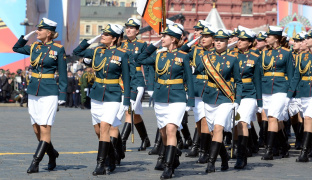
In the conditions of a full-scale war and an increase in military expenses, the government managed to partially return the social focus to the state budget for the next year. The main risk for its execution lies in the high expectations of economic growth. Will they be justified? Only time will tell. Uncertainty in the economy (and therefore in the budgetary sphere) remains significant.
Social benefits: returning to growth
For citizens, the key highlight of the 2024 state budget project, approved by the Cabinet of Ministers and submitted for consideration to the Verkhovna Rada, is the elevation of social standards.
For instance, the minimum wage will increase from the current 6700 UAH to 7100 UAH (starting January 1) and further to 8000 UAH from July 1. The subsistence minimum will rise from January 1: from 2589 to 2920 UAH. The minimum pension will increase from 2680 to 3200 UAH from April 1, and the average pension from 5500 to 6000 UAH.
Therefore, the minimum wage and pension will rise by 19%. Considering the government's forecast of consumer inflation at 13.8% in 2024, it results in a real increase in income for all citizens.
It is rather modest. However, let's not forget: the full-scale war with russia continues. And there are no indications of its swift conclusion yet. Thus, even such an improvement in social benefits comes at a high cost.
Moreover, it's not the only improvement. There is a provision for salary increases for all public sector workers. This will be accomplished by raising the first level of the unified pay scale to 3195 UAH (from January 1) and to 3600 UAH (from July 1). This change will lead to an approximately 24% increase in the salaries of doctors, teachers (and also civil servants).
This year, neither pensions nor wages nor social benefits increased in the country. It's also worth noting the dates of the upcoming increments: January 1, April 1, and July 1. That is, at the beginning of the year, the start of the second quarter, and the beginning of the second half of the year.
For a very long time, the government historically included the increase of social standards in the state budget starting from December 1. This "trick" was first devised by M. Azarov when he was heading the Ministry of Finance.
It appeared "appealing": on the one hand, authorities could announce to the people the raise in pensions, wages, subsidies, and the subsistence minimum for the following year. On the other hand, these social standards actually remained unchanged for almost the entire year.
After M. Azarov, subsequent governments continued this practice in the development of the state budget.
Here are a few figures illustrating the social focus of the 2024 state budget. The rise in housing subsidies and benefits for utilities amounts to 12 billion UAH, reaching 49.9 billion UAH; spending on social protection for the disabled rises by 2.4 billion, reaching 5.9 billion UAH (more than double).
Expenditure on social support for veterans will also double, reaching 13.6 billion UAH. Costs for all forms of rehabilitation and social adaptation will increase fivefold, reaching 2.6 billion UAH. Overall, expenditures in the social sphere increase by 25 billion UAH, reaching 469 billion UAH (including subsidies to the Pension Fund).
Funding for healthcare will rise by 24.4 billion, reaching 201.9 billion UAH; education by 22.9 billion, reaching 178.8 billion UAH. State support for sports will double, from 3.9 billion to 7.5 billion UAH. 10.7 billion UAH is planned to be spent on culture, 2.3 billion more than in 2023.
Business is also not forgotten: 30.8 billion UAH is planned to be spent on its development and support.
"No increase in taxes (for business – ed.) is foreseen. The government continues programs for preferential lending, the non-refundable eRobota grants program, support for Ukrainian startups. We are also launching new programs for industrial parks, for the implementation of investment projects, for supporting Ukrainian manufacturers", - said Prime Minister Denys Shmyhal on September 15, commenting on the approval of the state budget project during a Cabinet meeting.
Financial risks
Military expenditures remain colossal. They will increase by 113 billion hryvnias, reaching 1.698 trillion hryvnias (of which 1.164 trillion hryvnias are allocated to the Ministry of Defense, and 55.8 billion hryvnias for weapons production in Ukraine). Hence, the budget deficit for 2024 will also be colossal – 1.54 trillion hryvnias.
The question arises: will the government be able to finance all the planned items, or will this budget need to be trimmed and rearranged (clearly done at the expense of "social" expenditures rather than defense and security costs)?
It's worth noting that the Cabinet (represented by the Ministry of Finance, the primary document developer) has done everything to reduce this deficit. It is expected that compared to the current year, the state budget revenues will increase by 23.3% to 1.746 trillion hryvnias.
At the same time, expenses are being reduced by 2.5% to 3.309 trillion hryvnias. Consequently, the impending cash gap is reduced by 20.7%.
Nevertheless, even if all goes as planned, the government will finance only 52.6% of the expenditures from its own funds, according to calculations by the Center for Public Finance and Public Management Analysis at KSE.
The remaining money is expected to be acquired mainly through loans and grants from Ukraine's allies, anticipated to be $42.8 billion, according to the Ministry of Finance. However, reliance on external financing is not the primary risk for the execution of the 2024 budget.
At least according to the National Bank of Ukraine, the probability of discontinuing foreign aid is low, as Ukraine fulfills all commitments made within the framework of agreements on external financial support.
Hence, the most significant challenge lies precisely in the revenue portion of the budget. It anticipates a very substantial increase in receipts: by 25.6%.
Including: personal income tax (PIT) and military levy - by 73.6% (132.7 billion hryvnias), value-added tax (VAT) - by 21% (130.7 billion hryvnias), corporate profit tax - by 56.7% (62.8 billion hryvnias), excise tax - by 35.3% (51 billion hryvnias).
Let's recall D. Shmyhal's statement that there will be no tax increases. In that case, how can such a substantial increase in taxes be collected? Let's assume there are no issues with PIT and the military levy.
As noted, the minimum wage will increase from 6700 to 8000 hryvnias, a 24.7% rise in wages in the public sector. Consequently, the deductions from these salaries will also increase.
Excise is a delicate matter. It all depends on how effective the efforts of the authorities (Ministry of Economy, Ministry of Finance, tax and customs services, parliament) will be in formalizing the tobacco and alcohol trade, as well as the market for petroleum products (wholesale and retail sales of gasoline and diesel fuel).
But if we are to be optimistic, we should assume that efforts to increase excise revenues will still be successful.
There remain two problematic taxes. The issue with VAT is that the revenue for 2024, as estimated by the Ministry of Finance, is based on an average annual exchange rate of 41.4 hryvnias per dollar. But it's far from certain that it will remain at that level.
The 2023 budget at the Ministry of Finance was compiled based on a projected rate of 42.2 hryvnias per dollar. And they missed the mark: for the last six months, the actual exchange rate has remained around 38 hryvnias per dollar. This means that budget revenues from export and import VAT are at least 10% lower than planned.
It's quite possible that the situation will repeat itself next year: the hryvnia will be stronger than expected. Then, contributions from exporters/importers will be less because they are linked to the exchange rate.
The same applies to the import customs duty. It's planned to collect 44.4 billion hryvnias, 9.2 billion more than in 2023. It's uncertain whether this will be achievable.
Finally, there's the corporate profit tax. Revenues from this category are expected to increase from the planned 110.7 billion to 173.5 billion hryvnias. This is a significant increase considering the conditions of war when business activity is at a very low level, to say the least.
If the government's forecast for economic growth (real GDP) of 5% in 2024 proves accurate – then there won't be any problem in collecting an additional 62.8 billion hryvnias in taxes.
But... the war continues, and the International Monetary Fund expects a much more modest improvement in gross domestic product – only by 3.2%. This forecast seems much more realistic.
Hence, achieving the profit tax plan is definitely not possible. This is amidst the expected reduction in rent revenues from 97.2 billion (planned for 2023) to 54.9 billion hryvnias.
The available information doesn't specify for whom exactly the rent payment for subsoil use is being reduced: for state companies like Ukrnafta and Ukrgazdobycha or for the iron ore plants of oligarch R. Akhmetov (and possibly for both).
Nevertheless, the forthcoming reduction in rent clearly needs some compensation from other sources. However, as mentioned, these might not be available. One can only hope that the Ministry of Finance was not mistaken in its calculations and assessments of the development of the economic situation.
By Vitaliy Krymov, OstroV




